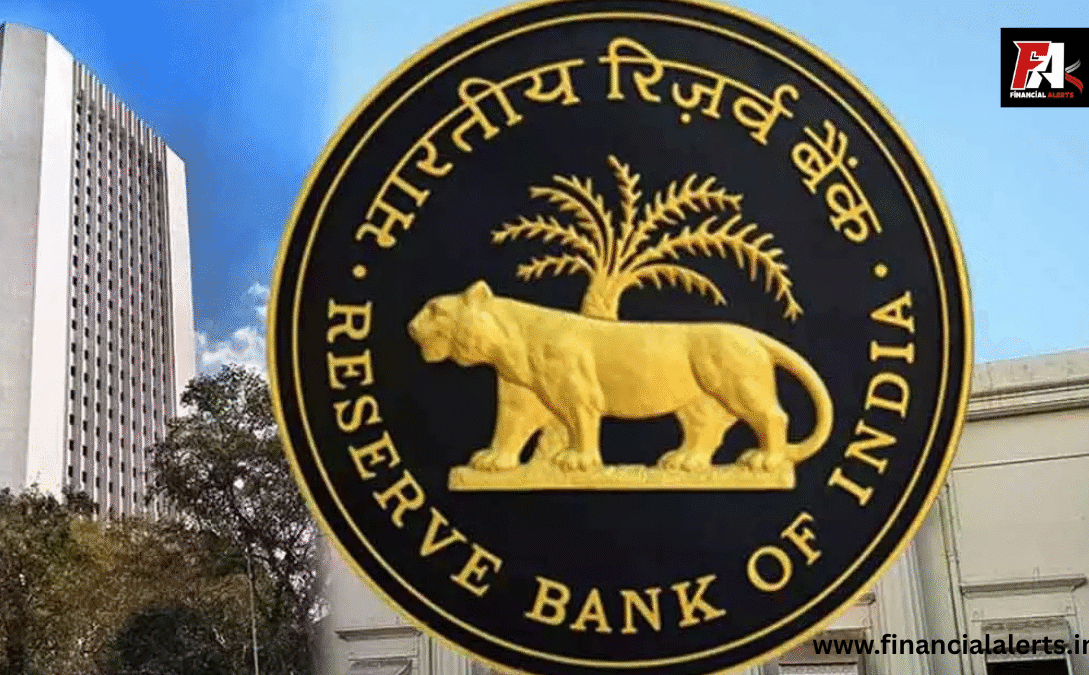Key Highlights
- On August 6, 2025, the Reserve Bank of India (RBI) held its repo rate at 5.50%, reaffirming a neutral monetary policy stance. This pause followed a surprise 50-basis point rate cut in June. Reuters+15Reuters+15The Economic Times+15Reuters+3Reuters+3Reuters+3
- RBI lowered its inflation forecast to 3.1% for FY26 (down from 3.7%) while keeping GDP growth unchanged at 6.5%. mint+2The Times of India+2
Market Impact: Rate-Sensitive Stocks Bear the Brunt
- Key equity indices tumbled: Nifty50 fell ~0.3–0.4%, Sensex dropped around 0.3%–0.4%. Reuters
- All 16 major sectors declined, with rate‑sensitive sectors like real estate (‑2.4%), consumer goods and autos (‑0.9% each) facing the steepest losses. Reuters
- Small‑caps and mid‑caps lagged, down ~1.2–1.4%, given their higher sensitivity to borrowing costs. Reuters+15Reuters+15Business Standard+15
Why the Stocks Dropped Post “Neutral” Tone?
- Investors expected further rate cuts after June’s aggressive policy action, given global trade tensions and a weakening rupee. Stocktwits+6Reuters+6Reuters+6
- The neutral stance signalled RBI’s reluctance to lean dovish, despite easing inflation trends. Moneycontrol+2mint+2
- Rate‑sensitive stocks often react not just to actual rate changes, but to shifts in RBI’s outlook and future guidance. Business Standard+6The Economic Times+6Moneycontrol+6
Focus Sectors: Banking, Auto, Realty
- Post-policy, Bank Nifty slipped marginally, while auto and real estate indices fell in the 0.4–0.8% range. Reuters+4Moneycontrol+4The Economic Times+4
- Following the June rate cut, rate‑sensitive names like HDFC Bank, Bajaj Auto, Eicher Motors, L&T Finance and Prestige Estates had shown strong upside potential. Now, profit-taking and caution dominate. Business Standard
Macro Context: Tariffs, Trade, and RBI’s Watchful Pause
- New U.S. tariffs on Indian exports and geopolitical risks raised RBI’s caution flag, limiting near-term easing scope. Growth risks and trade uncertainties were explicitly called out in official statements. Reuters+1
- With inflation at a six-year low (~2.1% in June), RBI appears content to wait and assess transmission of prior cuts before acting again. Reuters+1
Suggested Keywords for SEO Optimization
- RBI repo rate decision
- rate-sensitive stocks decline
- RBI neutral stance
- Nifty Bank reaction
- auto sector under pressure
- realty stocks fall
- market impact of RBI policy
- repo rate unchanged India
📌 Suggested Blog Sections
| Section | Description |
| Introduction | RBI’s repo rate pause and neutral stance decision |
| Policy overview | Covered rate, stance, inflation and growth forecasts |
| Market reaction | How broader indices and rate-sensitive sectors acted |
| Expert commentary | Analyst views on neutral tone vs dovish expectations |
| Sector deep dive | Banking, auto, realty impact & investor sentiment |
| Macro context | U.S. tariff risks and external headwinds |
| What’s ahead for investors? | Possible future rate moves and signals to watch |
What This Means for Investors
- Borrowers and lenders should note that no rate cuts mean EMIs and borrowing costs stay elevated in the near term.
- Rate-sensitive stocks faced immediate downside due to anti-climactic policy tone, even after prior rate cuts.
- Markets may recalibrate expectations, awaiting further clarity on trade outlook, rupee stability, and core inflation trajectory before pricing in additional rate cuts.
FAQ
RBI Repo Rate Decision and Market Impact- Q1. What is the current RBI repo rate?
- As of August 6, 2025, the Reserve Bank of India has kept the repo rate unchanged at 5.50%.
- Q2. What does a ‘neutral stance’ mean in RBI policy?
- A neutral stance means RBI is neither inclined to cut rates nor raise them immediately and will take future action based on economic data.
- Q3. Why did rate-sensitive stocks fall after the RBI decision?
- Rate-sensitive stocks like banking, auto, and real estate declined because investors had expected a rate cut, and the RBI’s neutral stance dampened sentiment.
- Q4. Which sectors are considered rate-sensitive?
- Banking, automobile, real estate, and consumer durable sectors are considered rate-sensitive as their performance is impacted by borrowing costs.
- Q5. How does the RBI repo rate impact the stock market?
- A change in the repo rate affects loan interest rates, business costs, and consumer spending, which in turn influences stock prices, especially in rate-sensitive sectors.
- Q6. What should investors do after the RBI policy announcement?
- Investors should monitor economic indicators, sector-specific trends, and RBI’s future guidance before making investment decisions in rate-sensitive stocks.

I am a digital marketing executive as well as content writer in the stock market and crypto related blogs. My goal is to provide simple, interesting and reliable information to readers through my articles so that they always stay updated with the world of stock market and crypto.




Alright, so I gave 7700bet777 a whirl. The platform seems solid and the odds are competitive. Definitely worth checking out if you’re looking for a new spot to place your bets. Good times! –> 7700bet777
Cwinsgame is alright, has a solid selection of games. Not my favorite site, but it’s reliable and works on different devices. Check it out yourself! Right here: cwinsgame
Baterybetlogin seems promising! The registration was a breeze and they have a good variety of stuff to bet on. Hope the payouts are quick! Check it out at baterybetlogin.
Your article helped me a lot, is there any more related content? Thanks!